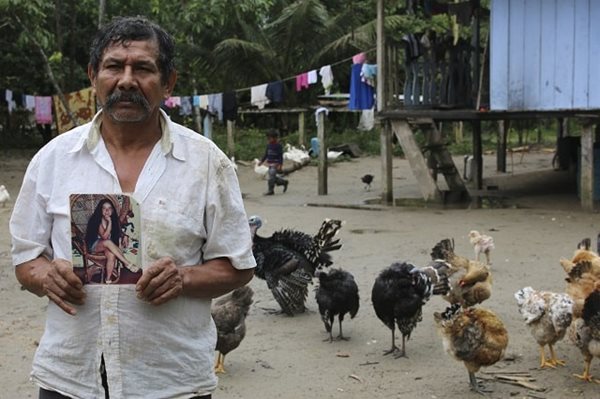On August 30, the Canadian Red Cross, along with members of the Red Cross and Red Crescent Movement, mark the International Day of the Disappeared. It is a day where we remember the hundreds of thousands of people around the world who are missing as a result of armed conflict, violence, and other humanitarian emergencies. For the families of those missing, each passing day without contact from their loved ones is one of uncertainty and anguish.
International Humanitarian Law - a set of rules that seek, for humanitarian reasons, to limit the effects of armed conflict - requires that parties to conflict both clarify the fate of missing persons and prevent people from going missing in the first place.
The 1949 Geneva Conventions affirm that in international armed conflicts, families have the right to know what happened to their relatives. Under the provisions of the Geneva Conventions, parties to a conflict must take all feasible actions to account for persons missing during war. In addition, all possible measures must be taken, without delay, to look for and collect the wounded, sick and shipwrecked, without adverse distinction. This means that people captured must be accounted for and treated humanely.

Those who have been detained also have the right to communicate with their families. For persons deprived of their freedom as a result of an international armed conflict, their personal data must be collected in order to properly identify the individual and inform their next-of-kin about their general state of well being. In addition, the Geneva Conventions expressly provide the International Committee of the Red Cross (ICRC) the right to visit prisoners of war during times of armed conflict.
Human remains of those killed during an armed conflict must be handled with dignity, identified, and ultimately returned to their families. All feasible actions must be taken, without delay to search for the dead. Those who have died must be treated respectfully and graves must be treated with care. This means that the dead should be buried in individual graves, wherever possible, and all graves must be marked. Parties to the conflict must provide information to authorities or to family members, including names, locations and causes of death and facilitate the return of remains when requested.
While there are no specific provisions within the 1949 Geneva Conventions relating to missing persons in a non-international armed conflict, the rules apply to persons not, or no longer, participating in hostilities. This includes entitlement to humane treatment. Additional Protocol II, which further clarifies the rules applicable in non-international armed conflicts, maintains that parties to a conflict must take all possible measures to search for and collect the wounded, sick and shipwrecked and provide protection and adequate care. As with international armed conflicts, parties to a non-international armed conflict must search for the dead and treat remains with respect. For persons deprived of their freedom for reasons related to a non-international armed conflict, they too must be allowed to communicate with their loved ones.
The ICRC and other members of the Red Cross and Red Crescent Movement work around the world to ascertain the fate of the missing. The Canadian Red Cross Restoring Family Links program provides ways for people to re-establish contact with loved ones separated due to armed conflict and other humanitarian emergencies. The Canadian Red Cross also works to ensure respect for the rules of armed conflict, including the legal obligation under International Humanitarian Law to clarify the fate of missing persons.

